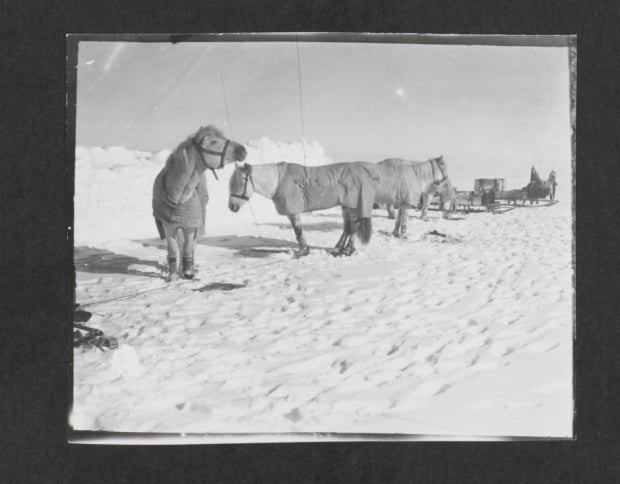Cambridge Looks to Save ‘Lost’ Negatives from Antarctic Expedition
Led by Captain Robert Scott, a team of scientists and their journey photographer, Herbert Ponting, made a polar expedition to Antarctica in 1911. Currently, The Scott Polar Research Institute in Cambridge (a sub-division of Cambridge) holds all of Ponting’s resulting negatives from this journey, as well as a collection of photographic work from the other scientists along for the exploration.
There is still, however, a piece (or pieces, rather) of the collection missing. That piece includes 113 ‘lost’ images taken by expedition leader Captain Scott, with a little bit of camera help from Ponting.
In hopes of acquiring and securing the ‘lost’ negatives of Captain Scott, who perished during a subsequent journey, the university is looking to raise £275,000 in donations by March 25th, or else the negatives go up for auction to the general public. They’ve raised £75,000 so far.

As to why these negatives are of such historical importance, famed explorer Sir Ranulf Fiennes (who is helping raise awareness for the campaign) had the following to say:
The negatives of Scott’s lost photographs are of major significance to the national heritage. Scott’s attainment of the South Pole and his subsequent death captured the public imagination on its discovery in 1913 and continues to exercise an extraordinary fascination. The negatives are a key component of the expedition’s material legacy as an object and as a collection in themselves.
The video at the top goes into greater detail on the significance of the journey and resulting negatives if you’d like to learn more.
You can also make a donation to Cambridge’s endeavors here if you’d like to help secure these pieces of antarctic exploration history. But even if you decide not to donate yourself, spreading the word could prove to be just as, if not more, beneficial to The Scott Polar Research Institute.
(via Photocritic)